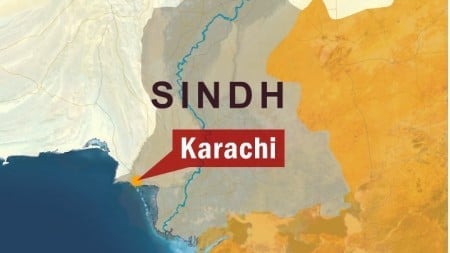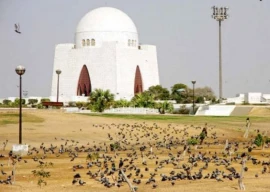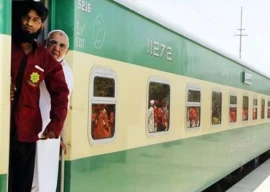
“UNESCO stands as a solicitor with the media people and the government should take necessary steps in educating people and floating maximum information,” Miller said.
“Governments have an obligation towards promoting and defending peoples’ right to be informed of the state of their countries and the world. We live in a world where information and ideas flow freely,” said Miller, who was of the belief that in Pakistan, the management of information is poor.
Former federal information minister Javed Jabbar said that he regretted the western media’s biases towards Pakistan.
“In the year 2000, a well-known magazine had dubbed Pakistan the most dangerous country in the world,” he said.
The West does not realise that Pakistan had welcomed and housed around three million refugees for the last 25 years, said Jabbar, who added that while PPF can address the problems faced by journalists in Karachi, reporters in rural areas have to fend for themselves as the government is unable to support journalists when the residents themselves are unforthcoming.
People need to back and support journalists in unearthing the truth, said Jabbar.
Safety of journalists
The national and international political situation is always so volatile that the journalists’ safety is a central concern, said PPF secretary-general Owais Aslam Ali, who was of the belief that the media is forced to cover war extremely dangerous assignments while the international community is incapable of securing the lives of journalists, which is why Pakistani reporters have learnt to count on no one but themselves.
“It is very difficult for journalists to cover a war that is taking place in an area where you yourself live. This is why much of the war in Swat and Fata is being monitored from Islamabad,” said Ali, who added that it is also very difficult for journalists to leave their families behind while taking on dangerous assignments. He cited the example of journalist Hayatullah Khan, who had been murdered while covering such an assignment.
“There was great pressure to hold an inquiry into his murder. His family was courageous. But what happened? His brother and wife were also killed. This is the situation we are dealing with.”
Impunity
Another area which requires joint efforts is impunity, said Ali, adding that the people who attack journalists are not held accountable. Around 40 journalists have been killed since the year 2000, but no one’s murder was investigated, apart from Daniel Pearl’s, which also took place because there was a tremendous amount of national and international pressure, he said.
Access to information
Every time a journalist is killed or a media house is attacked, the government announces that it will hold an inquiry. But the reports of these inquiries are never made public, Ali went on to say.
“The people of Pakistan have a right to know what is happening within the corridors of power. The 18th amendment recognises the access to information as a fundamental right of the people, subject to some reasonable restrictions, which are to be decided by the courts,” said Ali, who implored that international organisations like the UNESCO and the United Nations Development Programme (UNDP) should help government institutions in handling the requests for access to information.
Community radio
Pakistan is the only country in South Asia that does not have a community radio, said Ali, who added that joint efforts are required to “open the airways” for community radio channels. All major newspapers and television stations are based in big cities while radio is the only medium of communication that is based in a community.
There is nothing to fear from allowing a community radio system to develop in Pakistan, said Ali, adding that a mechanism can be devised to alleviate the government’s fears.
Published in the Express Tribune, June 17th, 2010.
1731570357-0/elon-musk-(1)1731570357-0-405x300.webp)
-(1)1717678110-0/Kendrick-(1)-(1)1717678110-0-165x106.webp)



1732428532-0/BeFunk_§_]__-(43)1732428532-0.jpg)




1725254039-0/Untitled-design-(24)1725254039-0-270x192.webp)






COMMENTS
Comments are moderated and generally will be posted if they are on-topic and not abusive.
For more information, please see our Comments FAQ